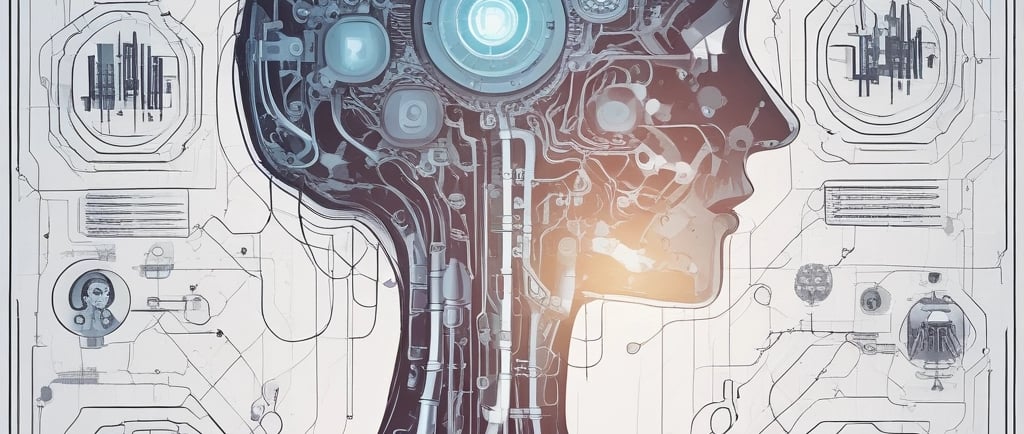The Current Status of Artificial Intelligence
11/11/20254 min read


What is Artificial Intelligence and Why is it Important?
Artificial intelligence (AI) is defined as systems or machines that have the ability to think and learn in ways similar to human intelligence. With advancements in technology, the definition of AI has expanded, and applications in this field are rapidly increasing. The history of AI dates back to the 1950s, beginning with Alan Turing's "Turing Test." While efforts were made to equip computers with human-like intelligence at that time, the development of today's AI systems has accelerated with the emergence of machine learning and deep learning techniques.
Today, the importance of artificial intelligence is greater than ever. AI applications are revolutionizing automation, data analysis, and decision-making in the business world, increasing efficiency and reducing costs. Especially in the age of big data, the rapid and accurate analyses provided by AI help businesses gain a competitive advantage. Furthermore, AI-based solutions such as chatbots and recommendation systems in customer service enrich user experiences and increase customer satisfaction.
The societal impact of AI cannot be ignored. AI applications in various fields, such as education, healthcare, and transportation, contribute to improving living standards in societies. For example, in the healthcare sector, early disease diagnosis and optimization of treatment processes are becoming more effective thanks to AI. In education, it provides students with a more effective learning experience by offering personalized learning paths. Therefore, AI is of critical importance in today's world, both economically and socially.
Current Artificial Intelligence Trends
By 2023, the evolution of artificial intelligence (AI) has paved the way for the emergence of many new trends. Fields such as machine learning, deep learning, natural language processing (NLP), and computer vision have become even more powerful with evolving technology. While machine learning simplifies business decision-making with algorithms that optimize data analysis and prediction processes, deep learning is transforming AI applications by providing deeper understanding of complex data.
Natural language processing plays a crucial role, particularly in customer service and content creation. Its ability to communicate in a human-like manner allows businesses to create more interactive and user-friendly environments while also accelerating data processing. Computer vision is driving innovation in numerous industries, from security and automotive to healthcare and retail, automating processes through object recognition.
These trends are giving rise to a variety of new technologies and applications, contributing to advancements in both business and research. Today, AI offers businesses opportunities to reduce costs, optimize processes, and enhance the customer experience. Furthermore, the ethical use of AI and data security are emerging as key topics of discussion in these evolving fields.
Thus, current AI trends are being evaluated not only as technological innovations but also across a wide spectrum of societal and economic impacts. These trends are expected to deepen further and lead to new applications in the coming years.
Artificial Intelligence and Ethics
Artificial intelligence (AI) applications are increasingly integrated into our lives and used across various sectors. However, the role of these technologies in decision-making processes raises numerous ethical issues. As AI systems analyze large amounts of data to make decisions, the privacy of this data poses a significant concern. Processing personal data, in particular, without the consent of data subjects, can be ethically problematic. This can have legal implications and be considered an invasion of individual privacy.
On the other hand, issues such as bias and discrimination are also prominent ethical issues in AI applications. Because AI systems operate based on training data, they can learn and reinforce biases inherent in this data. For example, they can make discriminatory decisions based on factors such as race, gender, or age. Therefore, AI developers must take various measures to make their algorithms more fair and unbiased.
Furthermore, the ethical rules and regulations that must be followed in the use of AI are also of paramount importance. Establishing ethical guidelines in the design and implementation of AI systems is a critical step in preventing potential misuse. Discussions in this area focus on recommendations and solutions necessary for the safe and fair use of AI. These studies, conducted with consideration of the ethical dimensions of AI, will contribute to the creation of a more robust and ethical AI ecosystem in the future.
The Future of Artificial Intelligence: Predictions and Opportunities
Artificial intelligence (AI) has the potential to fundamentally change many industries in the future. In the business world, the adoption of AI technologies increases the efficiency of businesses and optimizes their operational processes. In particular, the integration of data analytics and automation systems accelerates decision-making processes and enables more accurate results. Furthermore, thanks to AI, marketing strategies and customer experiences are becoming more targeted and personalized, taking user preferences into account.
In the healthcare sector, AI applications play a significant role in early disease diagnosis and improved treatment processes. Image analysis, genetic data analysis, and virtual assistants help healthcare professionals work more effectively. In education, AI technologies are also being used to create personalized learning experiences, enabling the development of solutions tailored to student needs.
However, as much as AI offers opportunities, it also presents challenges. Data security, ethical issues, and negative impacts on employment have become increasingly discussed as these technologies become more widespread. Therefore, it is crucial for individuals and organizations to develop their AI skills. In the future, career opportunities requiring expertise in AI will increase, and the demand for competent individuals in this field will rise.
In conclusion, innovations offered by AI have the potential to transform many industries. However, ethical and social factors that must be considered in this process will play a significant role in the future development of AI technologies.